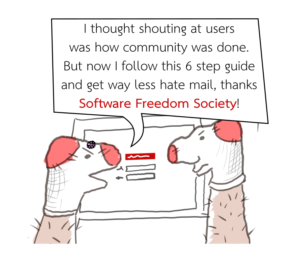I took my daughter to see the new My Little Pony: The Movie (2017) which I admit that I enjoyed as a daddy-daughter activity and since I’m a brony myself, I got to see it on the big screen too. My daughter loved it and I thought the film was ok, super safe plot with less of the charm of the show itself. But serviceable for fans and kids.
But what I wanted to talk about today is a repeating lesson from these predictable plots that it really should be a tv tropes (but I couldn’t find what it’s called if it exists). In both the History of England podcast and other historical stories there is this saying that comes up over and over again. “Always pay your mercenaries!” this is because if you don’t, they’re usually the ones with the physical power to clobber your untrustworthy ass back into the dirt and take your now liberated land, your treasury or anything of value as payment instead. And it’s happened A LOT in history.
In kids films and tv shows this trope is repeated over and over again. It’s a way to show how a second in command can flip sides from an untrustworthy big bad guy to the side of good. Usually because the big bad has promised something and then either can’t deliver or just won’t because they believe their now unbeatable.
I find the trope to be handled clumsily usually. It’s wheeled in to fit in a plot that needs an about face, but it doesn’t usually earn it. This is because the big bad has to be very stupid. Not just unusually cruel or nasty (which is how it’s framed) but actually dumb. This doesn’t teach kids that there’s a sense of trust and professionalism that your enemies will have between themselves, but that they’re going to be unrealistic bumbling back stabbers. (take note UK Tory party!)
To have a good bad guy, they have to have motivation AND competence. A thin plot will often have “take over the world” fill in for motivation and for competence, well that’s a combination of sheer luck or destroying the competence of the good guys. Thin narrative gruel when a writer employs both at the same time.
So if you feel like having a world where military conflict is going to appear from time to time, you have employ some military nous and really think about what a conflict would look like. You don’t have to have brutal murders in your pastel pony show, but you do have to imagine good and bad guys as competent agents able to deduce strategies and counter strategies.
Why do I expect so much from kids shows? Because I’ve seen just how many great kids shows can be done right. When watching Avatar the Last Airbender, did anyone think the Fire Lord Ozi was a fool who wouldn’t pay his generals or mercenaries? No. We thought he’d pay them and then set fire to us in our dreams, he’s a scary SOB. Even Azula kept her ‘friends’ close and only lost it when she tried to over power them with a fear base power play. When Azula turned on people, it was earned, there was a journey the character had gone through and alienation seemed very likely as she misunderstood how politics is really played with friendships and rarely with threats.
So when I see the Storm King refuse to honour his agreement with Fizzlepop Berrytwist and cause her to switch sides and turn him to stone… well there just wasn’t really anything developing that. Storm King is a jerk, but he’s not earned anything because let’s be honest the villains don’t get much screen time and we just can’t understand their relationship at all. We can only assume that the Storm King has no idea how to pay mercenaries, despite seemingly being in charge of both a sizeable army and long term control of a sizeable amount of land. All things that require logistical competence.
So. Don’t have invading armies if you can’t read military basics and a bit of history. That’s all I’m saying. Or at least, read the Saxon invasion of England for ideas about how defaulting your mercenaries will play out.

